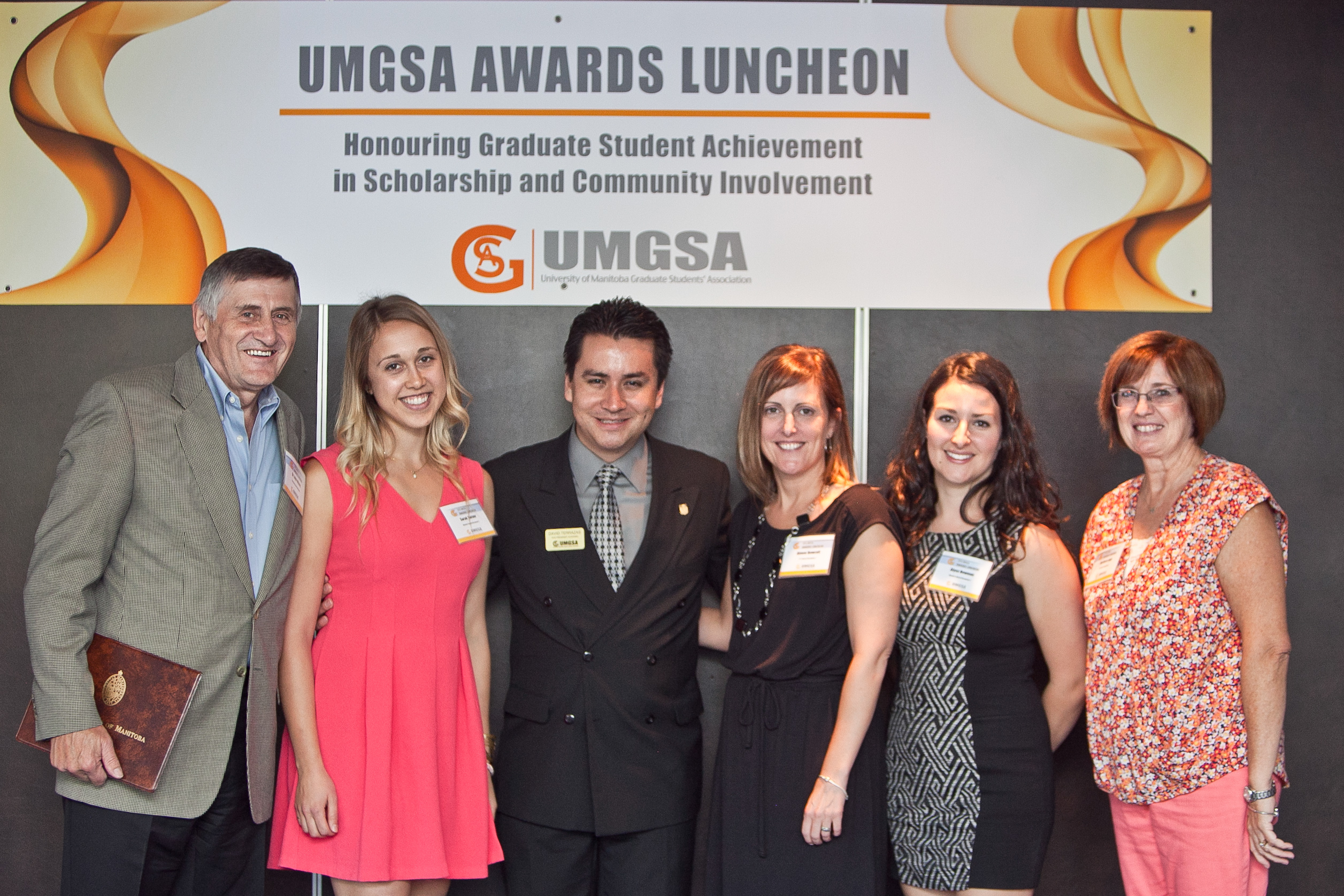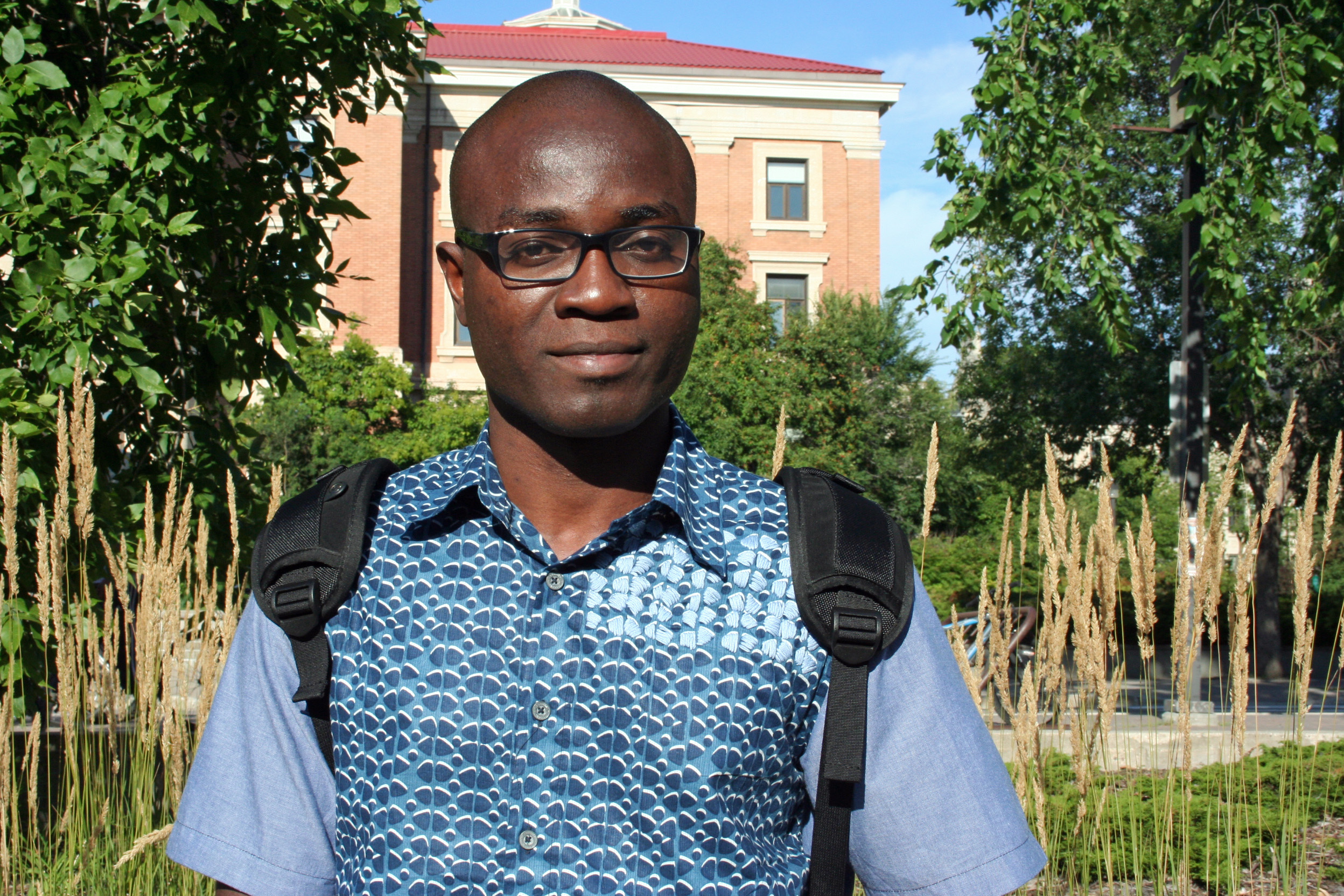On Tuesday, Aug. 27 UMGSA celebrated excellence within the graduate student community with the annual awards luncheon.
With friends, family, colleagues, and faculty members in attendance at Marshall McLuhan Hall, five current GSA student members were formally named recipients of student awards.
Vice-provost (Graduate Education) & dean of the faculty of graduate studies Jay Doering was present to welcome everyone in attendance and share his enthusiasm for the graduate program.
“The graduate students are an integral part of this university’s research environment and mandate,” said Doering in a speech that kicked off the celebration. “Your graduate studies under the supervision of your advisors drive the research, discovery, and innovation of this university. Your graduate training as students is this university’s success, this province’s success, and Canada’s success.”
Included amongst the recipients of the 2013/2014 UMGSA Awards were Full-time Master’s Award winners Beibei Lu and Stephanie LaBelle; Full-time PhD Award winner William Kurt Hildebrand; and Part-time Award winners Jane Kamabu and Pauline Tennent. Doctor Todd Duhamel, assistant professor in the faculty of kinesiology and graduate program chair, was named the winner of this year’s Teaching Award, which is nominated by graduate students of the U of M. The Teaching Award is given jointly by GSA and the faculty of graduate studies.
“A lot of times the relationship with graduate students is that advisors are pushing and pushing and trying to get more, and I take on that role quite a bit, but what I’m really glad to say is that I have a really good rapport with my students and I actually think there’s a really good mentorship relationship there, which is really important,” said Duhamel, addressing the crowd from the podium.
Hildebrand, the afternoon’s PhD Award winner, enlightened those in attendance as to the specifics of his own research endeavours.
“My research is focused on ultrasonic wave transport in strong scattering disordered systems. Because wave phenomena occur at many length and time scales, an increased understanding of wave transport in these strong scattering systems can provide insight into everything from nanoscale fields such as quantum mechanics, electron transport and optics, all the way to kilometre-scale fields such as seismology. Ultrasonic waves, it turns out, are a convenient tool to learn about wave transport and they occur on the easily accessible scales of millimetres and microseconds while they still yield very broadly accessible and applicable results.”
“My research aims to further our fundamental understanding of how waves travel when scattering is very strong,” said Hildebrand.
Another award winner, Beibei Lu, spoke of using her research opportunity in kinesiology and recreation management to help promote multiculturalism on campus and within the Chinese immigrant communities.
“I’m sure a lot of you here just spent a great summer with your families enjoying friendly Manitoba. But have you seen many immigrant families also enjoying their leisure time?”
“My research is about the leisure experiences of Chinese immigrant families, as well as their activities related to their family experiences.”
The UMGSA awards are designed in effort to recognize contributions from graduate students in areas of both scholarship and community involvement. They are funded in part through a levy applied to all graduate students approved through a GSA referendum, a donation from Dr. James Burns, as well as a contribution from the Manitoba Scholarship and Bursary Initiative.



